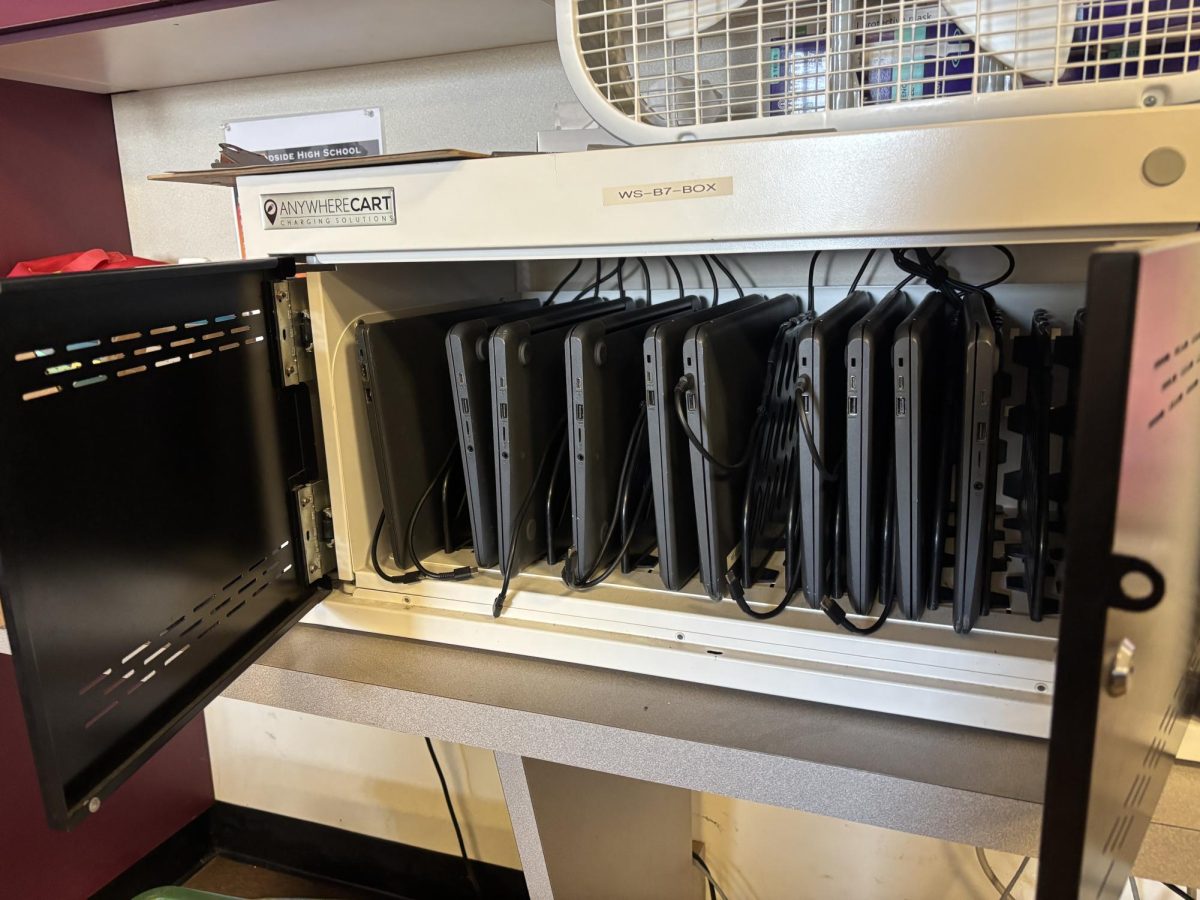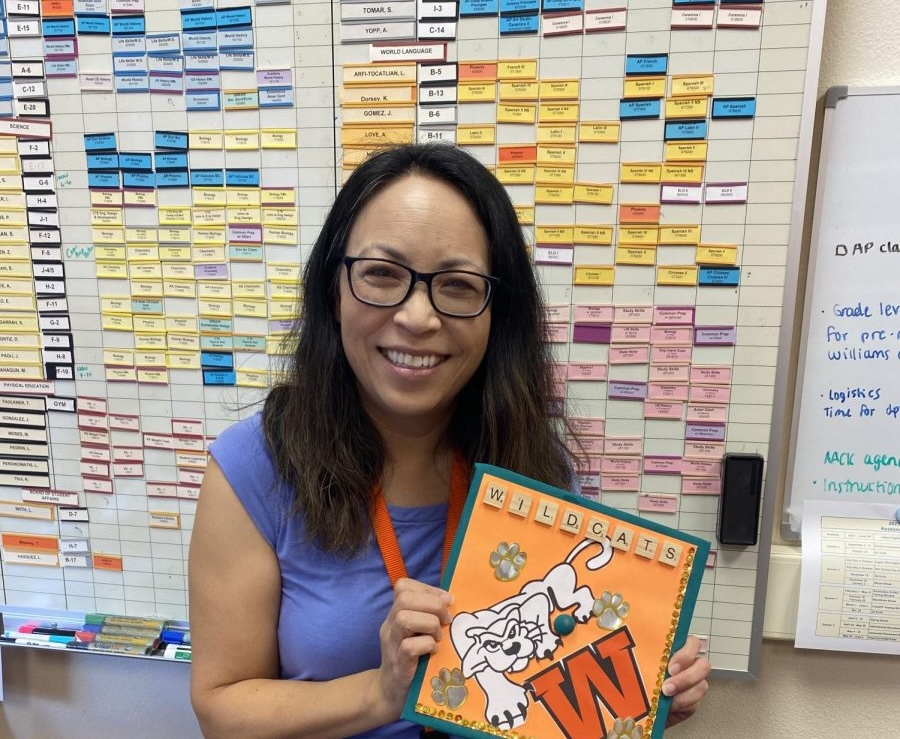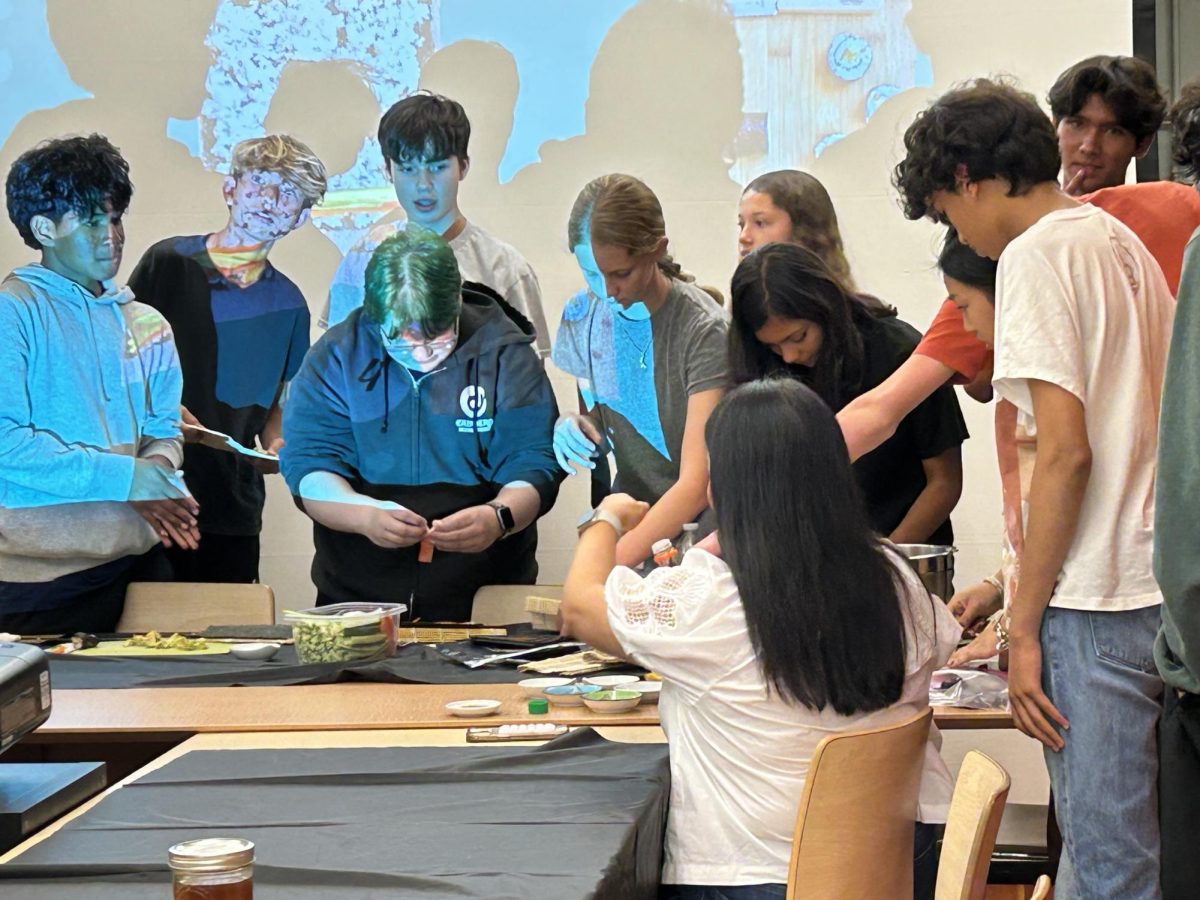Outdated technology and missing Chromebooks can limit Woodside teachers’ classroom technology use.
But while these issues caused by imperfect systems create setbacks, such as teachers not being able to conduct lessons with laptops when there aren’t enough extras to loan out, teachers adapt their methods and develop creative workarounds to these problems. And while these setbacks continue to be real issues, teachers are still generally satisfied with the technology they are provided by Woodside and the district.
“I think teachers have a lot of wishes,” English teacher and technology advisor Darcy Book said. “Most teachers are satisfied, but would like updated technology. Some teachers [want] access to new resources or new tools, [but it] can be kind of bureaucratic to get access to those tools.”
Still, Book said teachers feel fortunate to have access to more resources than most districts. However, Woodside can often be slow to incorporate new technology, even when the technology it’s replacing is outdated. Cara Klackle, the administrator in charge of technology, said that when dealing with electronics, a device reaching “end-of-life” can have varying meanings.
“A big issue on our campus are projectors with bulbs you can’t buy anymore,” Klackle said. “According to the manufacturer, [the projector reached] end-of-life [about] three years ago, [but the] district still thinks it’s usable. The district hasn’t really caught up to give us funds to replace those things.”
Book said Woodside is currently in the process of considering new technology to replace SMART Boards, specifically interactive flat panels from brands like Promethean and Samsung. Other types of technology, like software, also have slow adoption processes. Book said new technology has to go through a screening process at the district, with some tools needing board approval. Barbara Reklis, the district director of instructional technology, said this adoption process is there to promote the safe use of tools for staff and students, which sometimes includes working with a tool’s vendor to set up appropriate protections.
“The goal is to find a way to say yes to a technology adoption request, if at all possible,” Reklis said.
Many classes rely heavily on digital resources — such as history teacher Jonathan Sanchez’s classes — and make heavy use of tools like Canvas and Google Docs. For Sanchez and the many teachers like him, this means that students are expected to bring their personal or school-issued laptops to class. If a student forgets, they can borrow one of the extra Chromebooks kept inside the classroom, which is also known as a “loaner.” Loaner Chromebooks are often slow and have issues; Sanchez says one of the loaners in his classroom is “janky” and has problems with the mouse cursor. Sanchez compares this to where he used to live in Los Angeles.
“[The Los Angeles Unified School District] didn’t have loaners in the cabinet,” Sanchez said. “So if a student doesn’t bring their Chromebook [to class], and the class heavily relies on technology, then that kid kind of loses out on that day. Opposed to here, [where] if someone does forget their laptop, we have some in the classroom.”
But these loaner Chromebooks are not always returned, and when they go missing, Klackle said the cost incurred is significant.

“We issue them like we issue textbooks, at this point,” Klackle said. “Yet students are not returning them to [the room] they borrowed them from.”
Sanchez said his classroom had two loaner Chromebooks missing from before he moved in. Klackle said teachers can not teach lessons that require everybody to have a laptop if there aren’t any laptops to loan to those who need them.
“I think that’s becoming sort of a weird gray area for teachers,” Klackle said. “What [should you] do if [a student doesn’t] bring a laptop? It’s essentially the same question that we’ve had in education forever, [for example], what [should you] do if [a student doesn’t] bring a pencil? But it is harder when you’re talking about a pencil costing pennies and a laptop costing hundreds.”
Klackle said they’ve been working on ways to mitigate this, with solutions like stickers on the back of loaners that label what room it’s from. Though some of these Chromebooks may not be lost forever. Grant Guzman, an English teacher who had a loaner go missing this year, called the technology department, who he said was very helpful.
“They are extremely on it,” Guzman said. “In my experience, they are very conscientious. They helped me to report my missing Chromebook and lock [it down] in hopes that I [can] get it back.”






